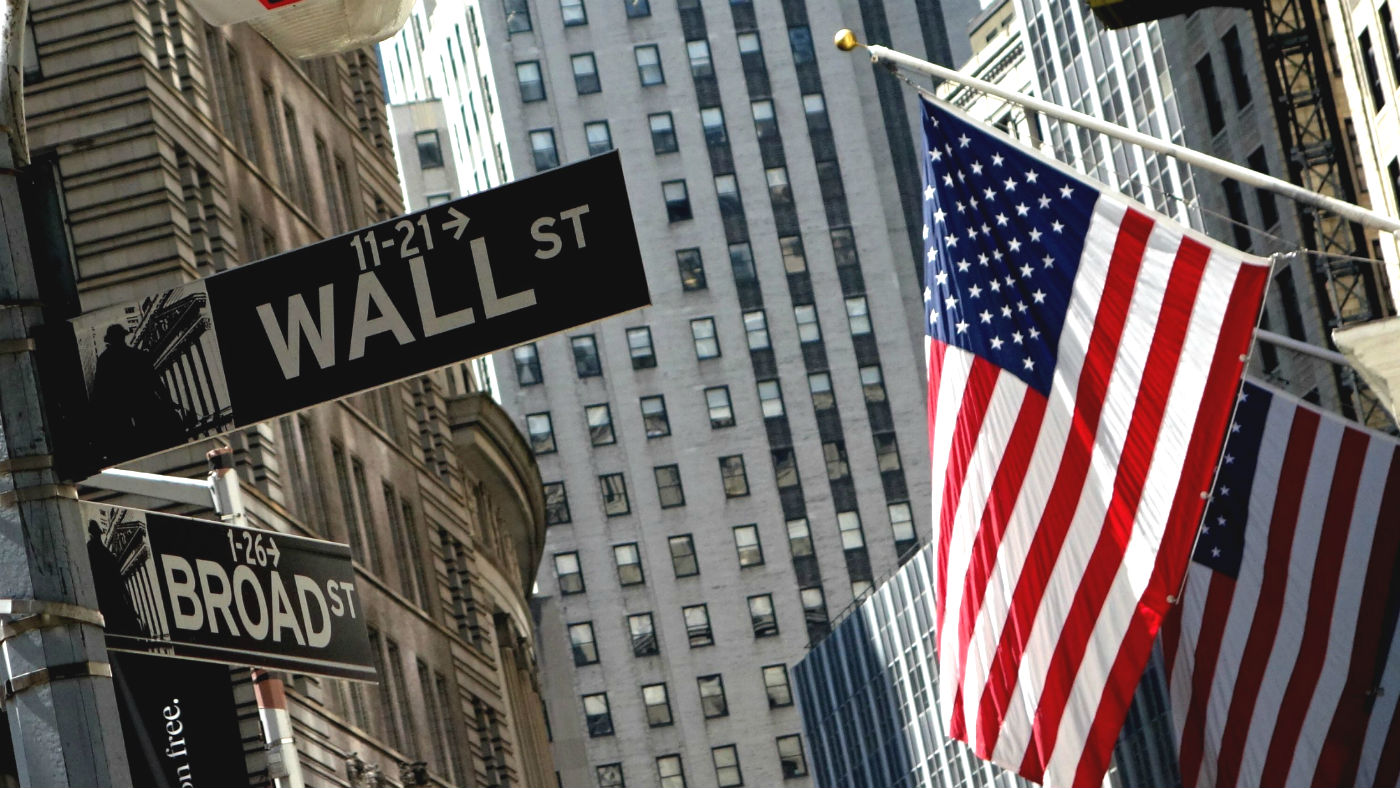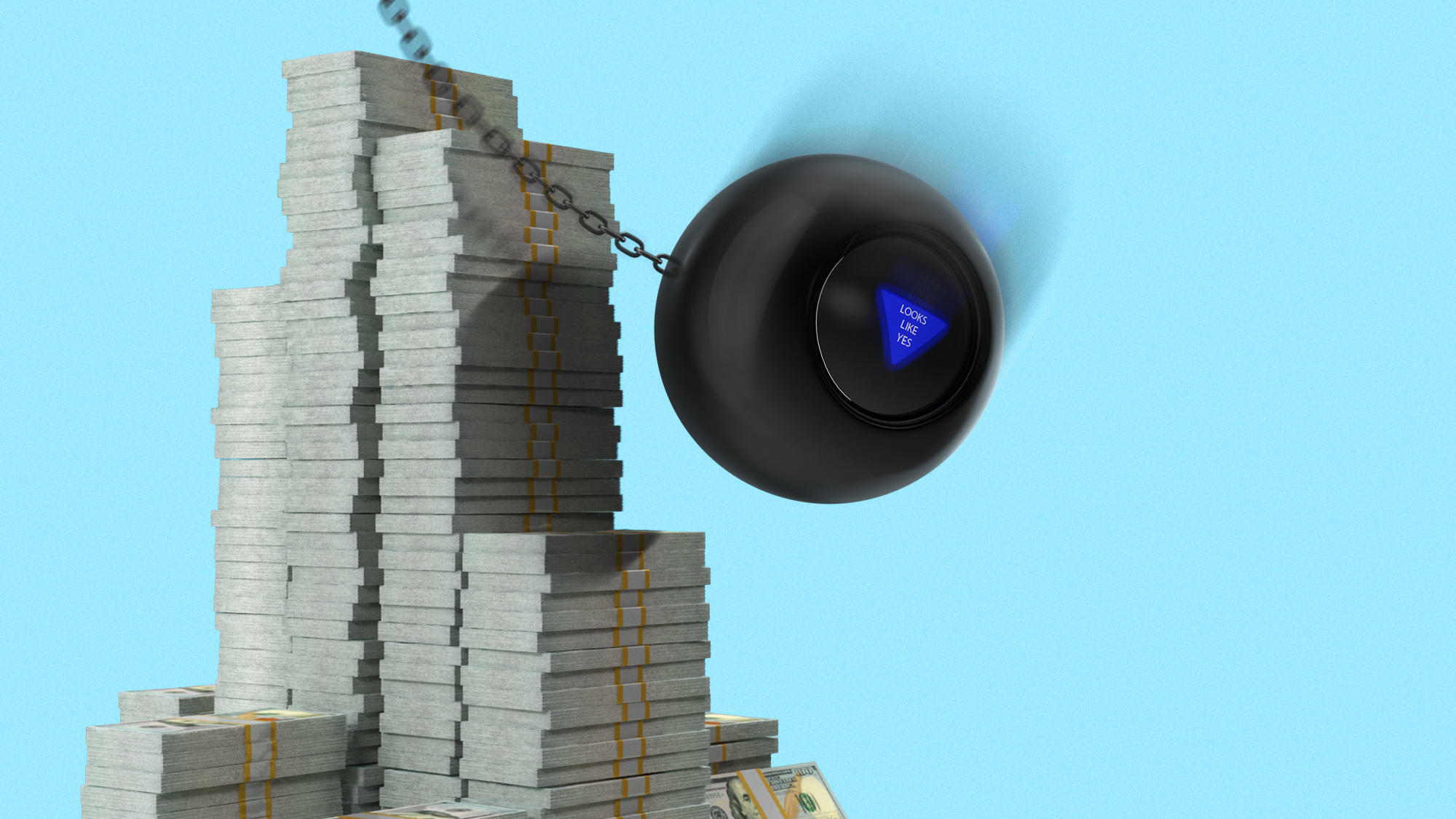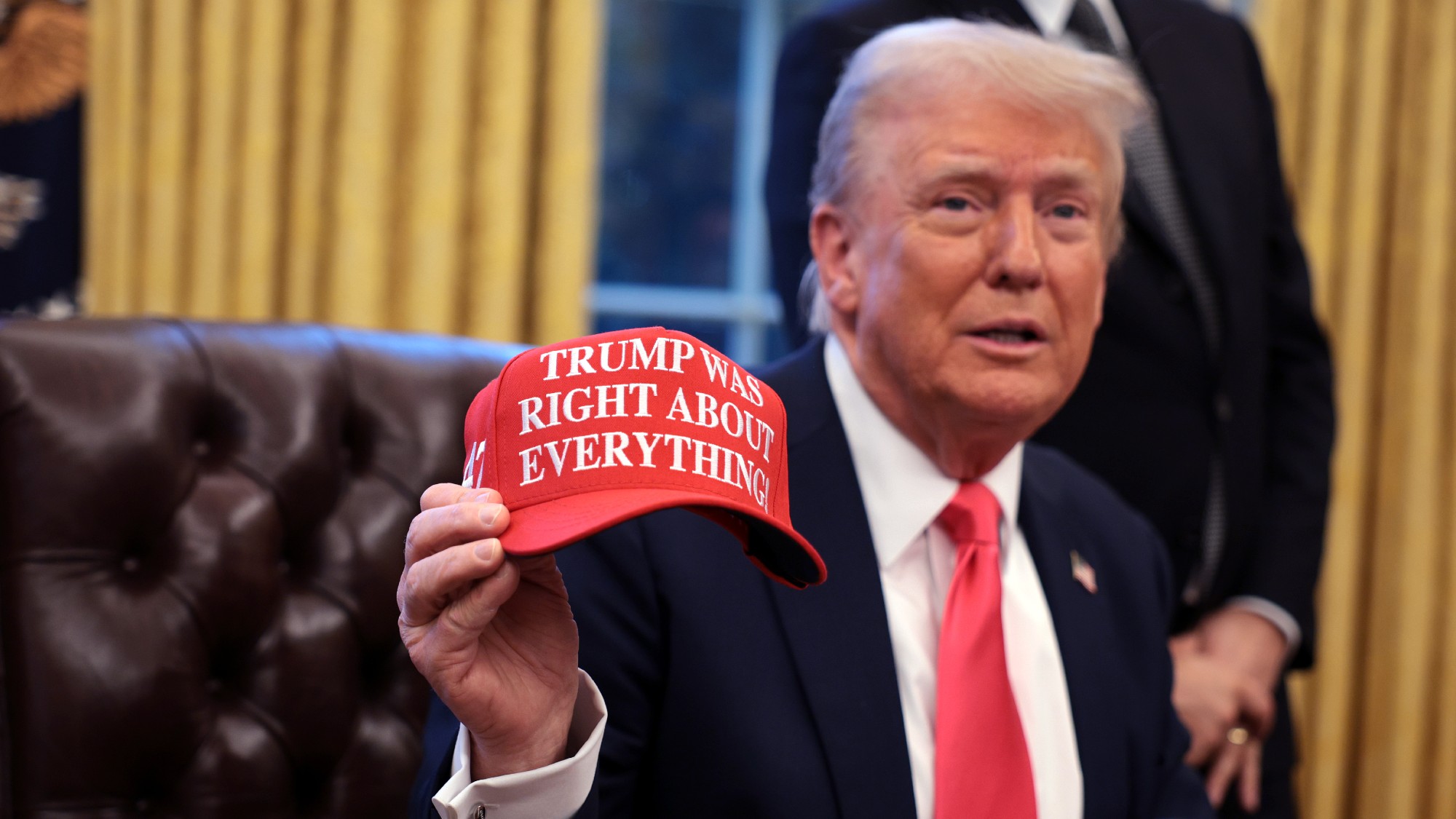Is the US economy on the brink of recession?
Market volatility, inverted yield curves and weak jobs figures suggest a slowdown in 2019

A free daily email with the biggest news stories of the day – and the best features from TheWeek.com
You are now subscribed
Your newsletter sign-up was successful
US markets have picked up this week where they left off on Friday amid growing concern the world’s largest economy could be on the brink of overheating.
Wall Street's head-spinning volatility, which last week shaved more than 1,000 points off the Dow Jones Industrial Average and wiped out 2018’s total gains, “has pushed stocks into correction territory and raised fears for 2019”, says CNBC.
“Extreme fear is once again sending Wall Street into chaos,” says Matt Egan for CNN. “Investors are debating whether the longest bull market in American history is nearing an end or just taking a breather”.
The Week
Escape your echo chamber. Get the facts behind the news, plus analysis from multiple perspectives.

Sign up for The Week's Free Newsletters
From our morning news briefing to a weekly Good News Newsletter, get the best of The Week delivered directly to your inbox.
From our morning news briefing to a weekly Good News Newsletter, get the best of The Week delivered directly to your inbox.
The S&P 500 plunged 3.2% on Tuesday last week before staging a massive recovery on Thursday, only to plunge again after Trump administration officials contradicted each other on trade.
Of primary concern is the ongoing trade war with China, which threatened to escalate dramatically after the US ordered the arrest of one of China’s top executives.
On the domestic front, evidence of inverting US bond yield curves, traditionally a good barometer of impeding economic downturn, has further spooked investors.
On employment, Americans got another positive jobs report on Friday “but it was full of warning signs that the economy is beginning to stutter”, says CNN Business.
A free daily email with the biggest news stories of the day – and the best features from TheWeek.com
Labour Department figures reveal the US economy added 155,000 jobs in November, fewer than expected although the unemployment rate remained steady.
“The report is a sign of a slowing but still strong labour market and further support for the idea that the Federal Reserve may hold off hiking interest rates over the next year as quickly or as much as initially planned,” says CNN.
This is likely to reassure investors who had been worried that the Fed would move too fast to cool off an already decelerating economy.
However, it has also led the International Monetary Fund’s (IMF) chief economist to warn Americans will begin feeling the effects next year of a marked slowing in world economic growth.
“We have long been predicting somewhat lower (US) growth for 2019 than what we are seeing this year,” as the effects of the Trump administration's fiscal and budgetary measures begin to fade, Maurice Obstfeld told the Wall Street Journal.
He added the slowdown “is going to be sharper probably in 2020 than in 2019, according to the data we are seeing,” although he said the US should be spared a new recession.
Some are not so sure. Barbara Rockefeller writing on FX Street says: “We continue to think the US will not fall into recession the minute the new year clock strikes one, but the sentiment is growing by leaps and bounds that 2019 is going to be awful for the US economy unless something comes along to reverse the trend and recession is well-nigh certain for 2020.”
“Markets are fully convinced we are in the last stages of an economic cycle,” Nicholas Colas, co-founder of DataTrek Research, wrote in a note to clients. “Traders are feverishly looking for the dry tinder that will turn a simple short circuit into a full-blown conflagration.”
Others are more bullish.
“For a market that's become increasingly jittery over the US economy, Goldman Sachs has a message: All is not lost,” reports CNBC.
In a research note to investors the investment bank said although falling stocks and rising interest rates will continue to weigh on sentiment, those negatives are likely to be offset by higher wages and oil prices in retreat.
“Three of the key drivers of consumer spending send a positive message for the near-term outlook," the bank's analysts wrote, adding: “The recent declines in the oil price, the high savings rate, and strong consumer sentiment, largely offset the drag from recent stock price declines, tightening lending standards, and higher rates.”
-
 How the FCC’s ‘equal time’ rule works
How the FCC’s ‘equal time’ rule worksIn the Spotlight The law is at the heart of the Colbert-CBS conflict
-
 What is the endgame in the DHS shutdown?
What is the endgame in the DHS shutdown?Today’s Big Question Democrats want to rein in ICE’s immigration crackdown
-
 ‘Poor time management isn’t just an inconvenience’
‘Poor time management isn’t just an inconvenience’Instant Opinion Opinion, comment and editorials of the day
-
 Is the US in a hiring recession?
Is the US in a hiring recession?Today's Big Question The economy is growing. Job openings are not.
-
 Is the UK headed for recession?
Is the UK headed for recession?Today’s Big Question Sluggish growth and rising unemployment are ringing alarm bells for economists
-
 What a rising gold price says about the global economy
What a rising gold price says about the global economyThe Explainer Institutions, central banks and speculators drive record surge amid ‘loss of trust’ in bond markets and US dollar
-
 Why has America’s economy gone K-shaped?
Why has America’s economy gone K-shaped?Today's Big Question The rich are doing well. Everybody else is scrimping.
-
 Is the US in recession?
Is the US in recession?Today's Big Question ‘Unofficial signals’ are flashing red
-
 Is Trump's tariffs plan working?
Is Trump's tariffs plan working?Today's Big Question Trump has touted 'victories', but inflation is the 'elephant in the room'
-
 Doing the hustle: Are side gigs a sign of impending recession?
Doing the hustle: Are side gigs a sign of impending recession?In the Spotlight More workers are 'padding their finances while they can'
-
 Frozen pizza sales could be a key indicator of a recession
Frozen pizza sales could be a key indicator of a recessionThe Explainer Sales of the item have been increasing since the pandemic